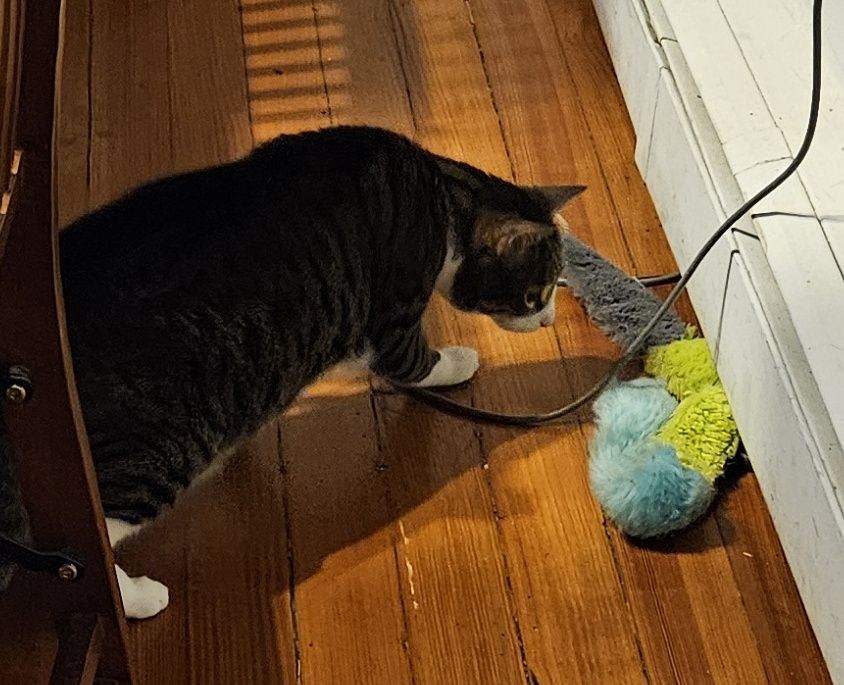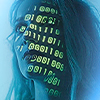![[personal profile]](https://www.dreamwidth.org/img/silk/identity/user.png) used_songs
used_songsOn the Consolation of Philosophy
O þou gouernour gouernyng alle þinges by certeyne ende. why refusest þou oonly to gouerne þe werkes of men by dewe manere. Whi suffrest þou þat slidyng fortune turneþ to grete vtter chaungynges of þinges. so þat anoious peyne þat scholde duelly punisshe felouns punissitȝ innocentȝ. And folk of wikkede maneres sitten in heiȝe chaiers. and anoienge folk treden and þat vnryȝtfully in þe nekkes of holy men.
“Hurry up! Wheel is on!” my grandmother shouts, urging me to turn the TV on and angle it so she can see it from her seat at the kitchen table. That’s the table we end up selling in the estate sale after she dies because everyone already has a kitchen table and no one has room for more furniture.
The theme music has already started as the TV snaps on, the picture slightly cloudy, like light through a veil, and the sound way too loud.
“-and Vanna White!” the host proclaims as the blonde woman in the near background waves.
“I’ve got a good feeling about the show today, Pat,” she says with a broad wink and a trained smile. He laughs and shakes his head.
“Well, we did have a big winner just the other day, but that doesn’t mean the wheel of fortune won’t hit again today for one of our contestants,” Sajak replies with a wry grin.
“What’s the trick, Pat?” a player asks.
“To stay in control of the wheel.” Pat looks at the camera. Perhaps he means to be ironic, but you can see the desperation in his eyes, a trapped creature beating against the screen that holds him.
“And don’t forget you need to be lucky,” Vanna adds. “O Fortuna velut luna statu variabilis, semper crescis aut decrescis; vita detestabilis nunc obdurat et tunc curat ludo mentis aciem, egestatem, potestatem dissolvit ut glaciem.”
Pat Sajak looks startled for an instant now, like the flash of a bird leaping from ground to sky, but he recovers quickly, laughing and saying, “I have a feeling someone will have powerful luck today!”
The parking lot was full of signs. Hopes. We stood in line, we went inside, we showed our voter registration cards and picture ID, we received instructions, we walked separately to the black boxes on fragile legs (theirs and ours), we touched the screens with the eraser tips of the pencils they gave us, we voted, we confirmed, we printed the ballot, we fed it into the other black box. We got a sticker. Even then, though, I knew. And I thought of quitting.
I used the touchscreen on the black box to register my vote. Let the computer count it. Why not place my trust in machines when people are so untrustworthy?
And Vanna touches the lighted rectangles and the initial letter appears. “T.” She claps and smiles. That’s not the letter I said when the wheel stopped spinning, but everyone acts as though it is. Pat Sajak grasps a card tightly and frowns.
“I thought she said K,” my grandmother says.
“I did,” I complain. “I did say K.” Onscreen the player mutters something under her breath and the camera pans away quickly, reality tucked away on the outskirts and hidden from view.
We watched the returns with hope and dread. Even then I knew because I know how luck turns, how unfair life is, how your dreams get stepped on, how there is no security – only chaos and despair.
We have been climbing up the wheel for so long, slipping in grease and sweat and blood, and in an instant we are swept down again. Centuries of striving undone in one election cycle. After a while, it becomes difficult to keep restarting. It feels futile, and, in a way, it is. This is the consolation of philosophy, but it’s an impossible way to live. Me, obsessively checking for your location, because now I have to worry you will be abducted by ICE while you are on your morning run or when you take your mom, a naturalized citizen, to the store.
Me comforting parents who have endured so much and now may not outlast this, who live in fear instead of safety.
I thought it was the smell of my grandmother’s house, but it turns out it was the smell of dust. Now my parents’ house smells the same. We are nothing. We are going to be ground up by history. But we are important to ourselves.
I would like to buy an A.
“Three A’s!” Pat exults and Vanna turns over a U.
And I am so angry.
“Would you like to solve the puzzle?” Pat asks and Vanna looks eagerly at the camera, her hands frozen in mid-air, ready to clap.
The puzzle, of course, is how we are so stupid and angry and mean and heartless and gullible. How we are so bad, so nasty and brutish. So cold. My grandmother tries to sound out the phrase as the picture goes out of focus. “’Sors i_ _ _ nis et in_ nis, rot_ tu vo_ ubi_ is, st_ tus _ _ _us, v_n_ s_ _ us se_ per disso_ ubi_ is.’ I don’t know what it is yet. Do you?” she asks me. Onscreen Vanna seems to shrug.
I do. The chyron on the bottom of the screen speaks of tyranny. Philosophy looks at me from her seat at the table and says, “This world of ours—thinkest thou it is governed haphazard and fortuitously, or believest thou that there is in it any rational guidance?” She might be mocking me, but I think it's just that she does not care.
My grandmother, long gone, so far away that I can barely remember her voice, sighs and says from the corner, “We make up these philosophies and these religions to make ourselves feel better about the inescapable unfairness and randomness of life. The truth is, we are only important to ourselves. That’s life, riding high in April, shot down in May. The truth is the wheel of fortune.” I turn to ask a question, but she is irrevocable.
I guess the dead would know how cold the comfort really is.
She lived through her own interesting times – two world wars, the Great Depression, Spanish Flu – people struck down by the indifference of God or Fortune or their fellow humans. I guess she would know. And now she knows that none of it ultimately matters.
But it matters.
The words on the puzzle have lasted longer than you and will be here long after you are dust. Even when they burn all of the books, the words will still be there. Even when there is no one to read them. I used to believe in societal progress. Now I know better. We are just fragile birds, flying through the longhouse, enjoying the light and warmth and grabbing the comfort we can from the shadows, until we go back out into the cold dead flat darkness unleavened by any stars.
“I’d like to buy a vowel,” I say frantically.
“Is it a U?” Pat asks, his eyebrows drawing down in an expression of cruelty. I lean back, the wheel ticking endlessly.
“No!” I cry, unheard, from deep within a room that no longer exists. My grandmother’s little dog inches closer to the forbidden space heater and looks back at us and smiles. Dust.
My grandmother snorts. “She wasted her money, There are no other vowels.” The contestant turns away disappointed. She solved the puzzle, she won the money, but she walks away empty handed because the wheel turned.
"Sors immanis et inanis, rota tu volubilis, status malus, vana salus semper dissolubilis, obumbrata et velata michi quoque niteris," Philosophy sings from the corner, mocking my hopes.
It doesn’t matter. The wheel turns. It doesn’t matter. It does matter.







